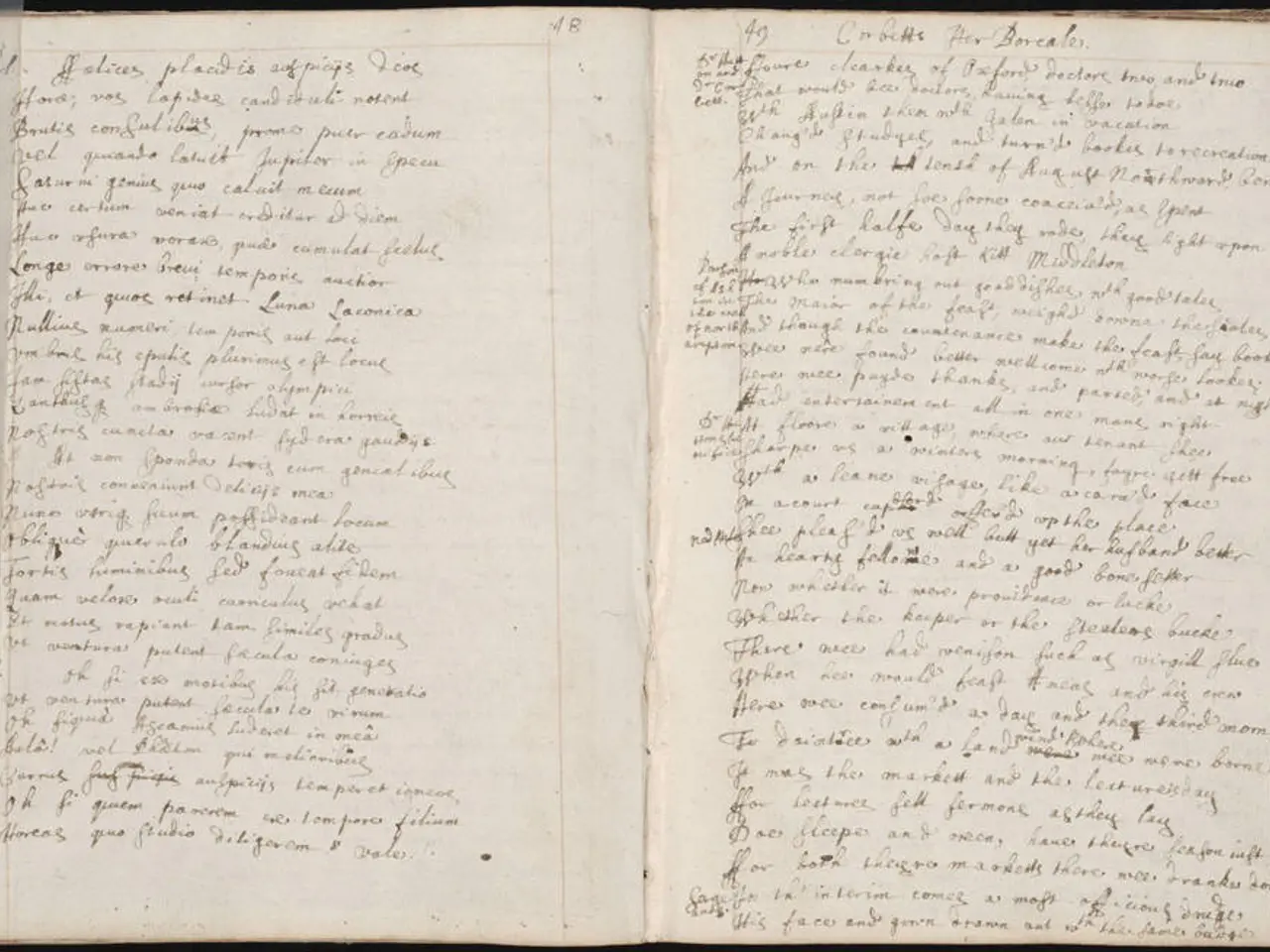Conflict between Ayn Rand and Milton Friedman, as discussed by Jennifer Burns
In the realm of 20th-century thought, two figures stand out for their unwavering advocacy of capitalism and individual freedom: Ayn Rand and Milton Friedman. Despite their shared ideology, their narrative styles and approaches to societal transformation differed markedly.
Ayn Rand, a novelist and philosopher, articulated her philosophy through fictional novels and a distinctive, didactic style. Her most famous works, such as "Atlas Shrugged" and "The Fountainhead," combine storytelling with philosophical exposition to illustrate the moral and heroic nature of capitalism and rational self-interest. Rand's narratives are symbolic and personal, aiming to inspire readers emotionally and morally.
Milton Friedman, a Nobel laureate in Economics, used a more academic and policy-oriented approach. His writing, such as in "Capitalism and Freedom" (1962), is analytical and pragmatic, focusing on economic theory and practical policy recommendations. Friedman's style was that of a professional economist addressing scholars and policymakers, emphasizing evidence-based arguments and economic reasoning.
Rand's impact was primarily cultural and philosophical. Her work helped shape the moral foundations of libertarian and conservative movements by providing a moral justification for capitalism as the only rational and moral social system. Ayn Rand's ideas continue to challenge our understanding of individuality, capitalism, and human nature.
Friedman's impact was more directly policy-centered and pragmatic. By promoting specific economic policies and engaging with governments and the public, he aimed to reshape institutions and government policy to enhance economic freedom. Friedman's influence reached mainstream economic and political spheres, affecting monetary policy, deregulation, and education reform.
Ayn Rand's novel, "The Fountainhead," features Howard Roark, a character who represents Rand's ideal of the individual focused solely on their own creative vision. Roark's portrayal is mythic, using fiction to influence people deeply and transform lives. However, some critics argue that the portrayal of achievement in "The Fountainhead" is somewhat unrealistic.
Rand's work, while influential, is sometimes perceived as simplistic or absurd by her detractors. Despite this, her ability to flip conventional wisdom on its head is a significant aspect of her legacy. Similarly, her work is not a depiction of how things are, but how she envisioned them to be, creating an inverse Marxism that resonates psychologically today.
In contrast, Milton Friedman's approach was fundamentally focused on economics rather than cultural transformation. He occasionally drew upon American frontier mythology in his work, but his emphasis was on rational economic thought, providing frameworks rather than mythology.
Ayn Rand stood outside traditional intellectual communities, and her work is often excluded from lists of great 20th-century thinkers. Nevertheless, her ability to challenge conventional wisdom and force deeper questioning of assumptions makes her work provocative and enduring.
In summary, Rand's approach was more narrative-driven and moral, seeking societal transformation through ideas and values, while Friedman emphasized pragmatic policy advocacy based on economic research, reshaping freedom through institutional and policy reform. Both figures, however, remain significant in shaping our understanding of capitalism, individualism, and human nature.
[1] Friedman, M. (1962). Capitalism and Freedom. University of Chicago Press. [2] Rand, A. (1943). The Fountainhead. New American Library. [3] Friedman, M. (1980). Free to Choose: A Personal Statement. Simon & Schuster. [4] Peikoff, L. A. (1991). Objectivism: The Philosophy of Ayn Rand. Meridian.
Books like "Capitalism and Freedom" by Milton Friedman (1962) and "The Fountainhead" by Ayn Rand (1943) offer unique perspectives on education-and-self-development and personal-growth within the context of 20th-century thought. While Friedman's academic text focuses on economic theory and practical policy recommendations, Rand's novel delves into the moral and heroic nature of capitalism and rational self-interest through symbolic storytelling and emotional inspiring narratives. However, entertainment is also present in both works as they provide thought-provoking ideas for readers interested in understanding the intricacies of capitalism, individualism, and human nature.




